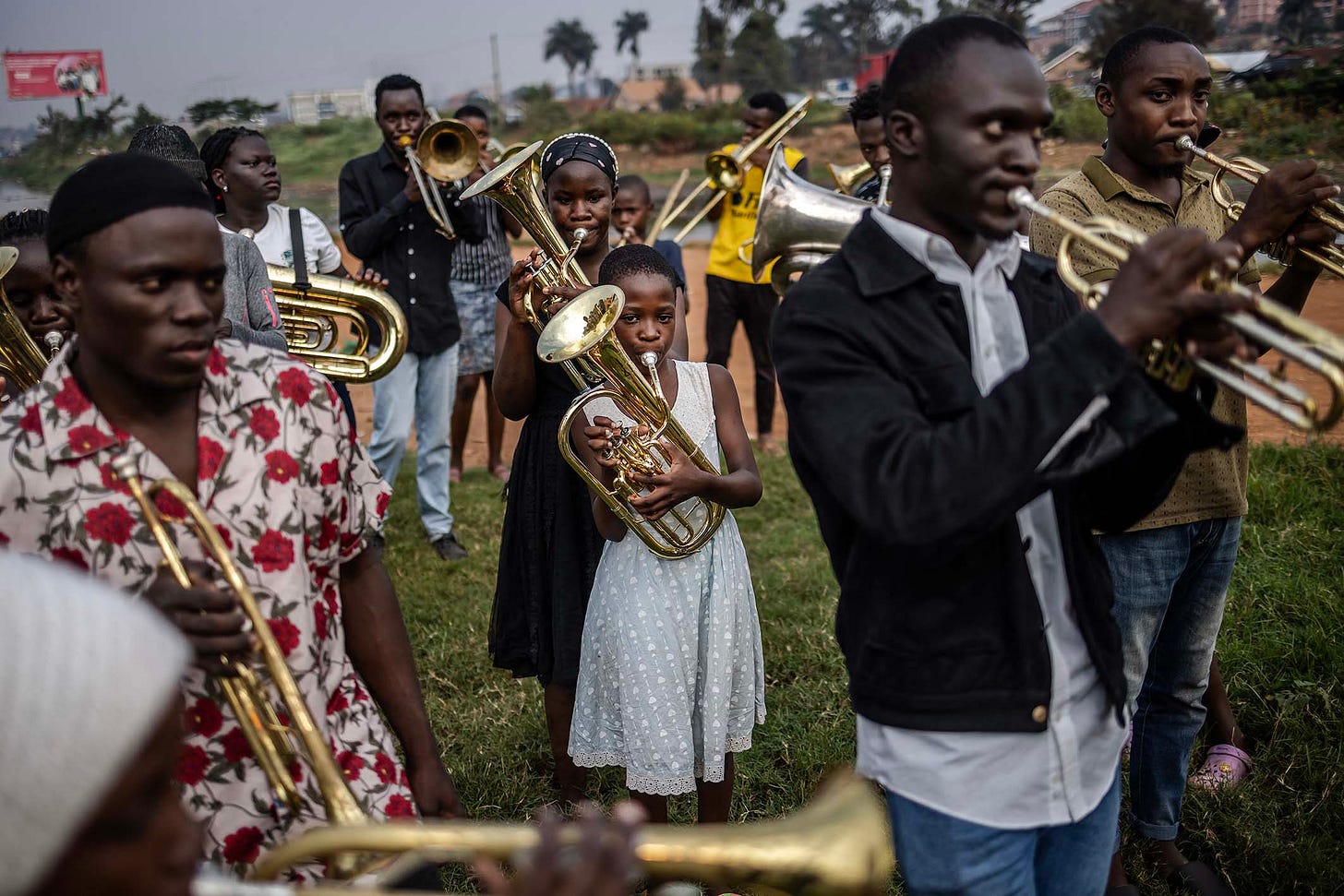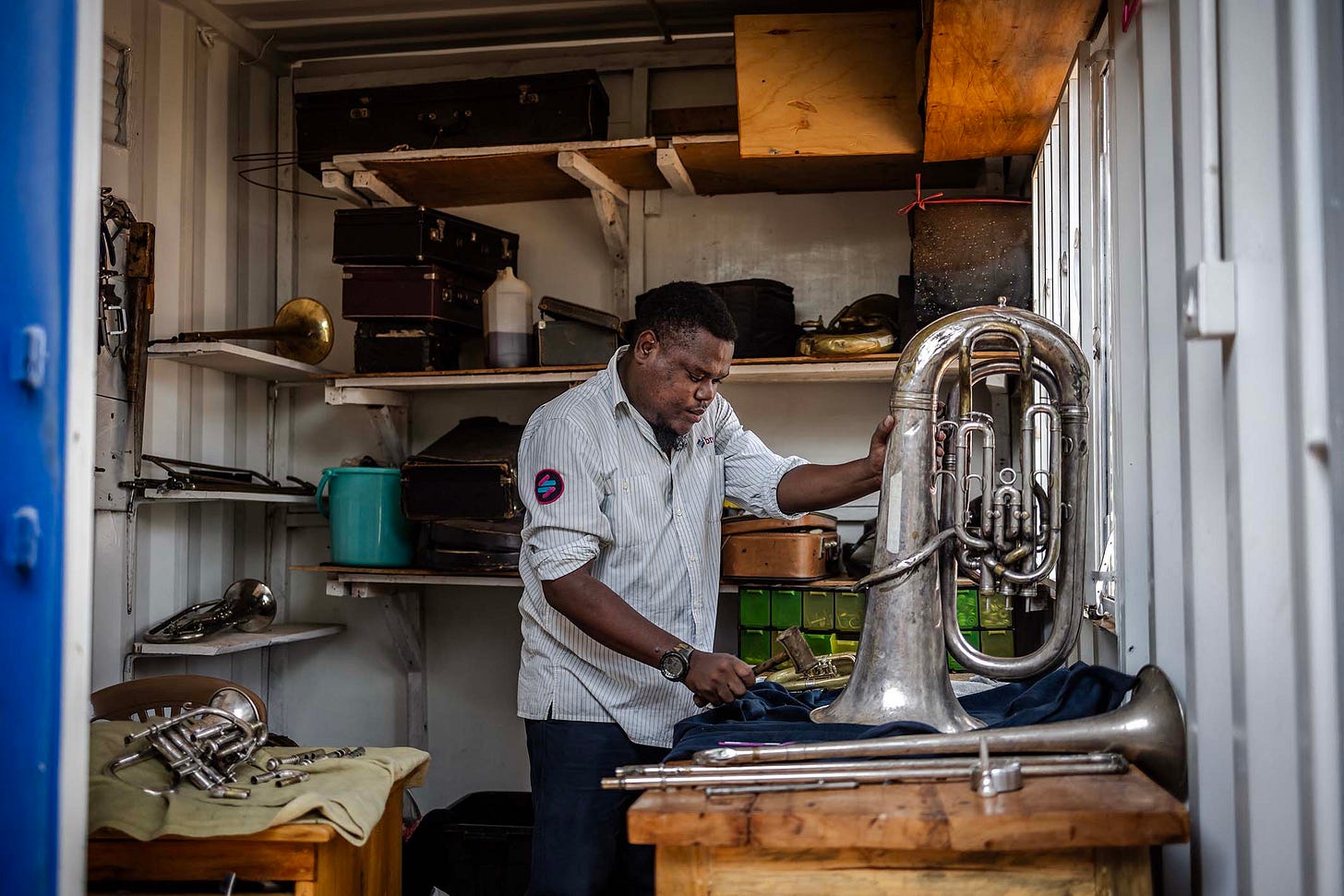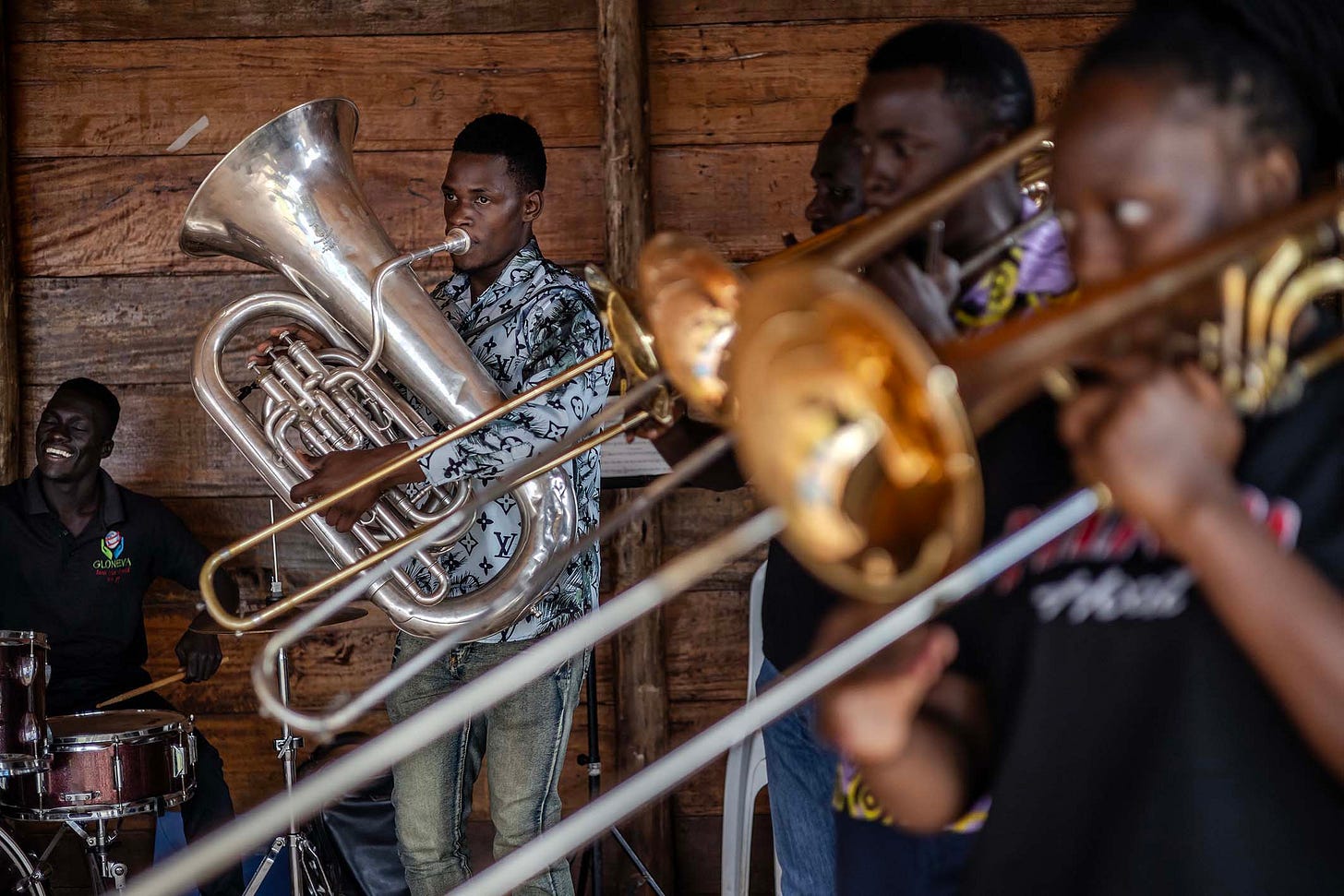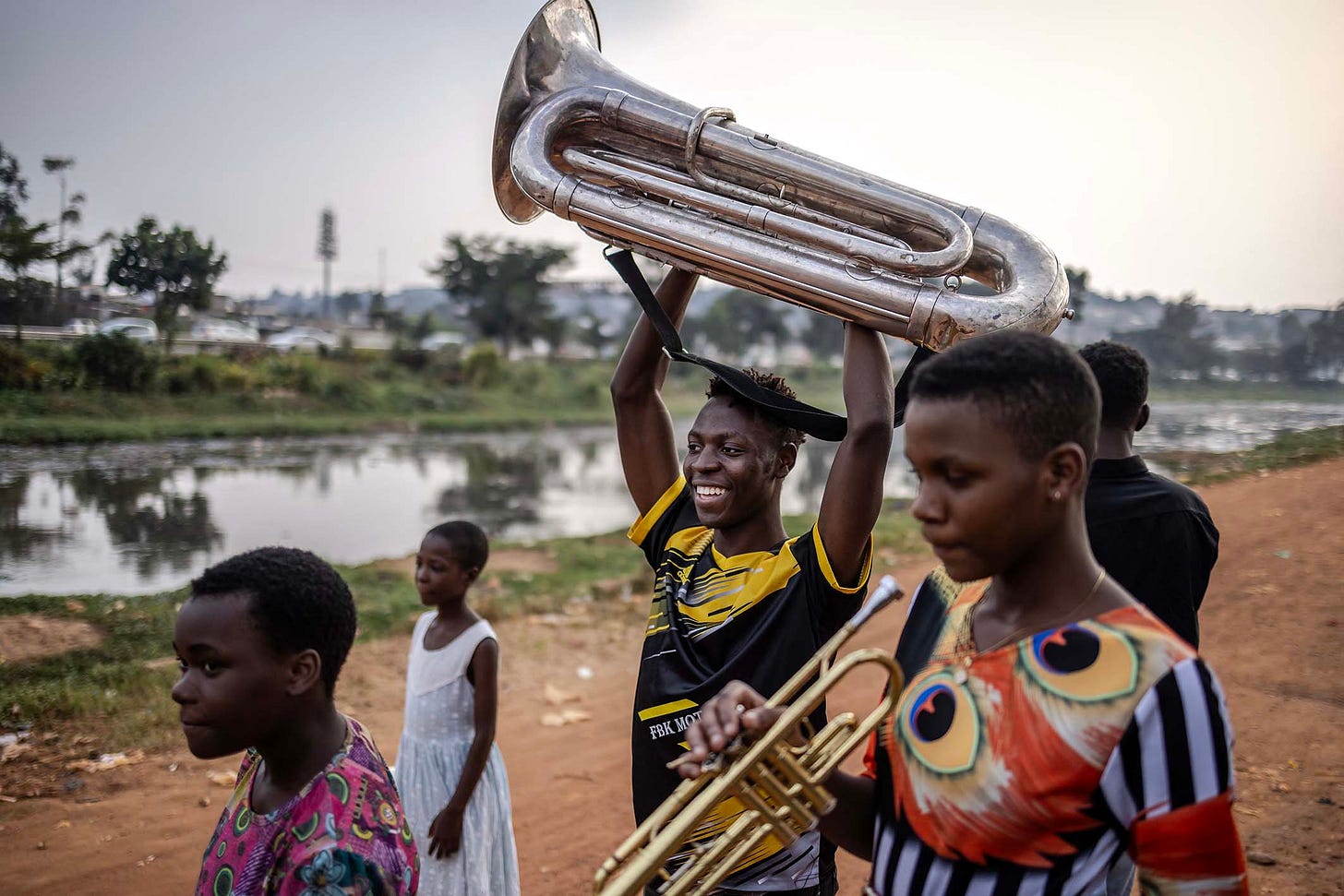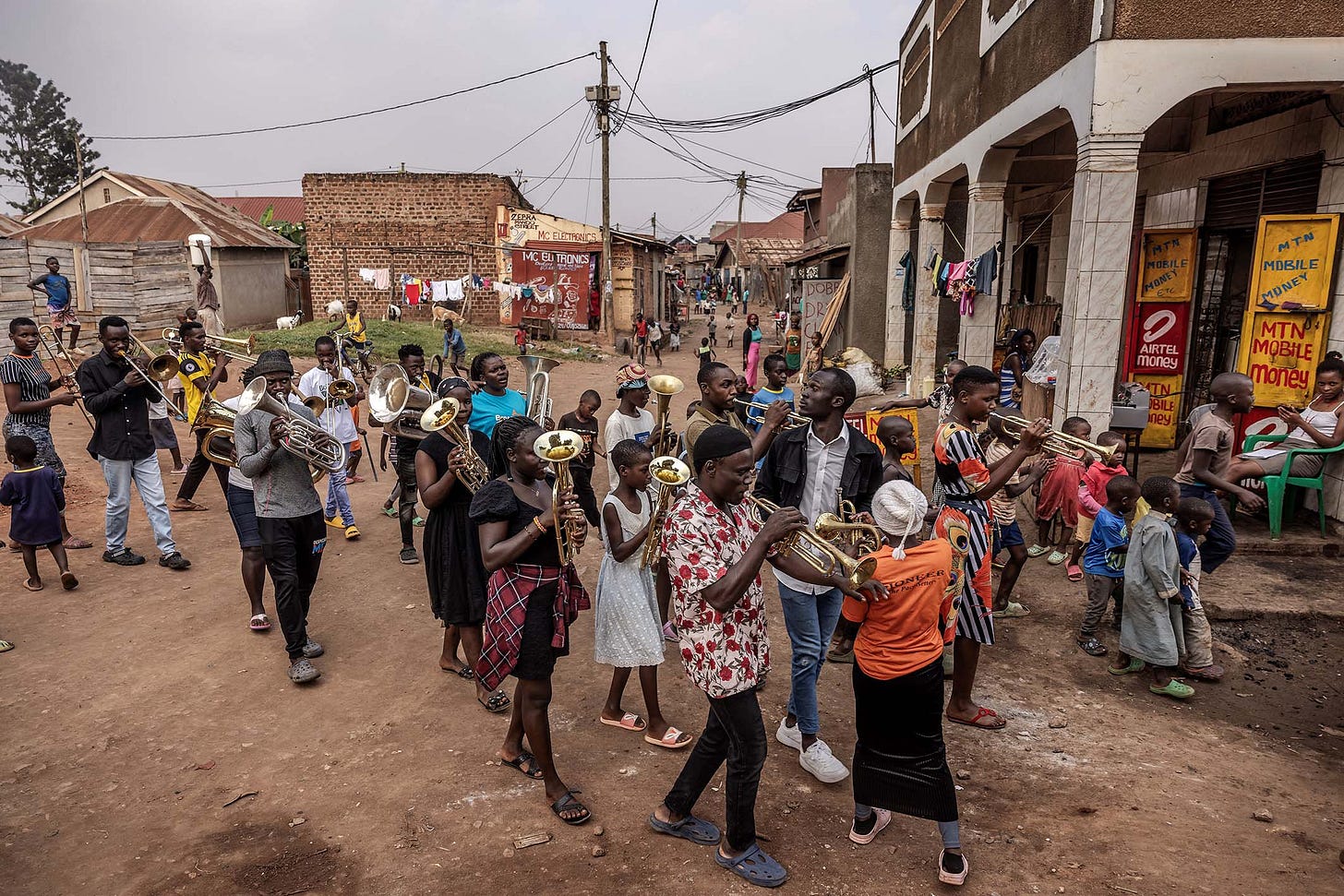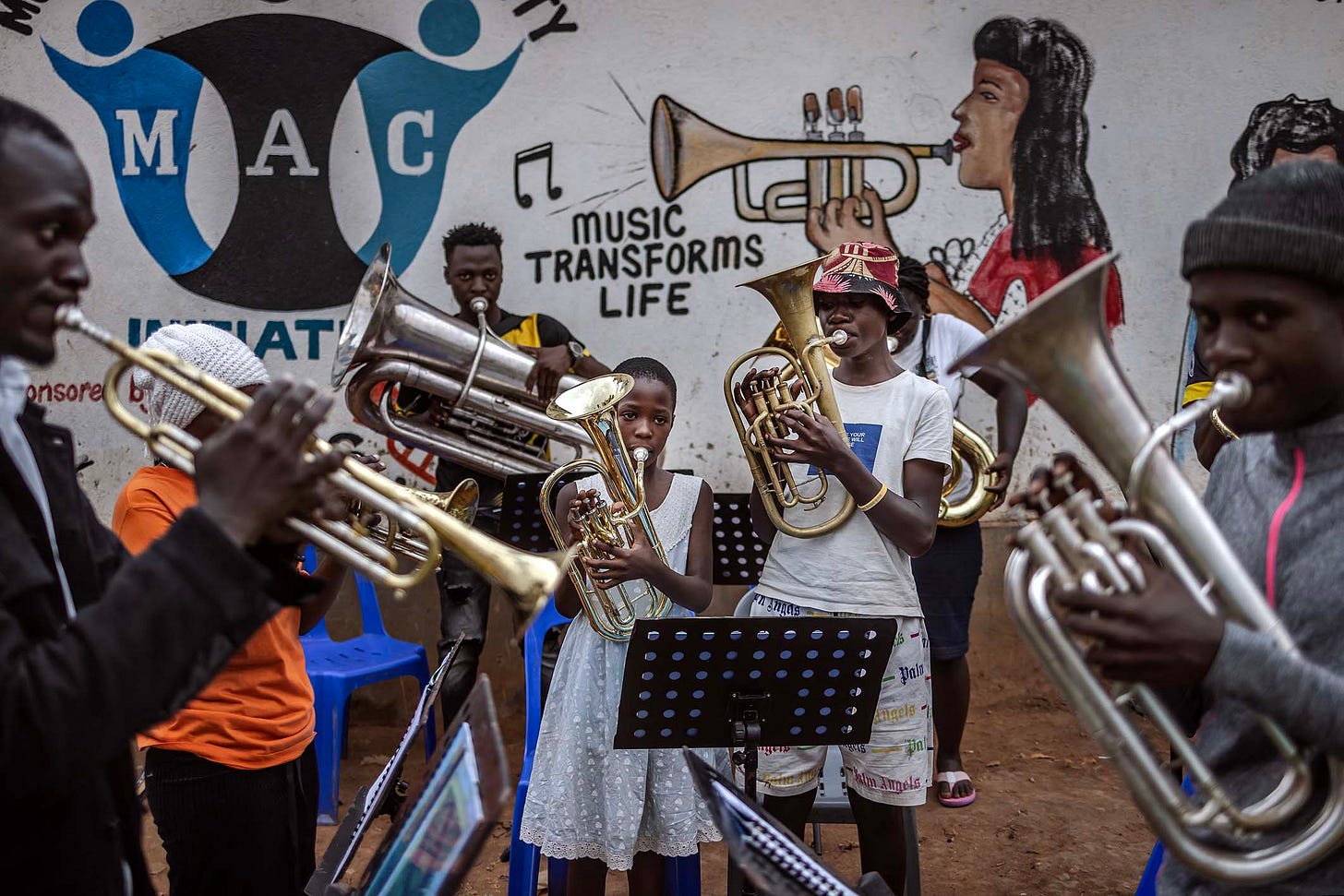Photo Essay: Brass roots
In some places, sporting talent is the best shot at a rags-to-riches story for children born in poverty. In Uganda’s capital, Kampala, music is a better bet.
Photos: Luis Tato/AFP
Musical fame helped Bobi Wine go from a singing “Ghetto President” to leader of Uganda’s political opposition.
Eddy Kenzo, who sang himself off the streets, was recently – if controversially – appointed “senior presidential adviser on creatives”.
And by singing in the world-famous Watoto Choir, the city’s orphaned children have earned millions of dollars to support themselves and other orphans around the city.
And let’s not forget Brass for Africa, who are also active in Liberia and Rwanda, and their efforts to keep the tradition of transformative music going for a new generation of Kampala’s kids while making sure they have a blast.
Don’t be flat, play B-flat: Brass for Africa musicians tune up before setting out on a parade through the Bwaise informal settlement in Kampala.
Back from the brink: Steven Mayanja of Brass for Africa restores old bugles, f lugels, trumpets, horns, trombones and this tuba by hand at his workshop in Kampala. Possibly even the odd euphonium, should the occasion merit it.
Bass of operations: Lower brass players rehearse ahead of a gig. The organisation’s community bands offer young disadvantaged Ugandans opportunities that can genuinely transform their lives.
Setting a high bar: Young brass players take a break during a peripatetic practice ahead of their Bwaise parade.
To their own beat: The Brass for Africa musicians strike up a march as they parade through Bwaise’s dusty streets.
T-bone stakes: Trombonists slide into a break during a sectional practice ahead of a performance in Kampala. The doggies aren’t in the band. Don’t have the embouchure for it, if we’re being honest.
Stand and deliver: These dandy highway musicians – we’re not too scared to mention – don’t need to spend their cash on looking flash, but are adamantly grabbing our attention.




